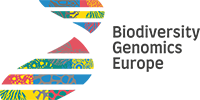Biodiversity calls! Workshop for the networking of taxon experts
LIB/ZFMK – Leibniz Institute for the Analysis of Biodiversity Change, Museum Koenig Bonn
Bonn (Germany), 20-21 September 2024
Museum Koenig hosted this networking event on 20-21 September where hobby experts had the opportunity to interact with scientists, share ideas, and discuss challenges. A total of 36 participants (amateur expert taxonomists with different backgrounds: PhD and master students, school students, natural history museum staff, Federal Agency for Nature Conservation staff, and scientists at research institutes and universities) took part in the workshop, which was led by BGE colleagues Carolina Corrales, Sarah Bourlat, Ralph Peters, and Nicole Fulgham-Scott, all of them from LIB/ZFMK.

Overview of the event
The first day began with an introduction on why biodiversity matters and the reasons why we were organising the workshop. Different activities followed, including presentations of projects such as BGE and GBOLIII as well as other projects offering taxonomy training opportunities in Germany, followed by museum tours through the main exhibition, and behind-the-scene tours of the entomological collection and the ornithological collection. The second day tarted with a keynote presentation by award-winning novelist Jasmin Schreiber, followed by different interactive stations where participants could learn about dark taxa, capacity-building offers, the BGE barcode gap list and how DNA sequencing works. The highlight was the panel discussion, as both the panellists and the audience shared their thoughts on how to improve taxonomic knowledge and education, as well as how taxonomy knowledge can be improved in society and for the younger generations. The workshop was rated very good to excellent according to participant feedback, and people particularly appreciated the chance to network and the diversity of participants (from very young to retired taxonomists).

Goals
- To raise awareness about the importance of taxonomy for biodiversity.
- To build a solid and efficient German network to improve biodiversity knowledge.
Content
- Presentation of projects related to biodiversity and taxonomy (BGE, GBOL III: Dark taxa, Unbekanntes Deutschland, FörTax, KennArt)
- Flash-talks given by taxon-experts
- ‘Behind-the-scenes’ museum tours
- Dinner to socialise and network
- Keynote talk by the award-winning novelist Jasmin Schreiber: Researching aliens – Why taxonomy is one of the most diverse, exciting and underestimated sciences
- Posters displaying taxonomy-related projects at Museum Koenig and from participants
- Five Hands-on booths:
- Identification: The main objective was to display ‘unidentified’ specimens (Lepidoptera, Coleoptera, Hymenoptera) from the museum collections to demonstrate the abundance of material still awaiting identification.
- Sampling: we presented the gap list and provided sampling kits to participants interested in contributing arthropod specimens from the gap list to the BGE project. The booth informed participants about how they can contribute to BGE from reference library curation, providing specimens and participating in taxonomythons.
- Dark taxa: this stand aimed to find out what ‘Dark Taxa’ are, their importance for biodiversity and which animal groups are studied in the GBOLIII project.
- Sequencing: The Brickopore was used to explain playfully how sequencing, databases and Genbank BLAST work to identify species.
- FörTax: this stand offered the opportunity to have a chat with interested young experts. Moreover, videos and posters showed the different taxonomy training activities and nationwide educational courses offered by FörTax.
- Panel discussion on how to involve the next generations in taxonomy. The panel consisted of a museum curator, a high school student, a self-employed biologist, and a scientist working on biodiversity monitoring. It was moderated by our collections manager and former GBOL coordinator Björn Rulik.
Images by Carolina Corrales and Peer Pape – LIB/ZFMK (Leibniz Institute for the Analysis of Biodiversity Change, Museum Koenig Bonn).





![{“capture_mode”:”AutoModule”,”faces”:[“-817_-2410_-577_-2170”]}](https://biodiversitygenomics.eu/wp-content/uploads/2024/09/BGE_ZFMK_biodiversity_genomics-scaled.jpg)






